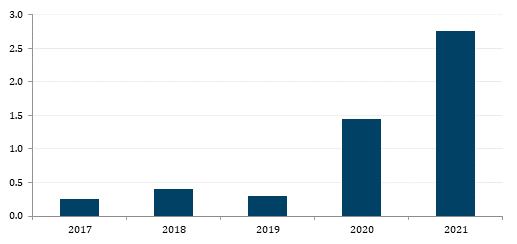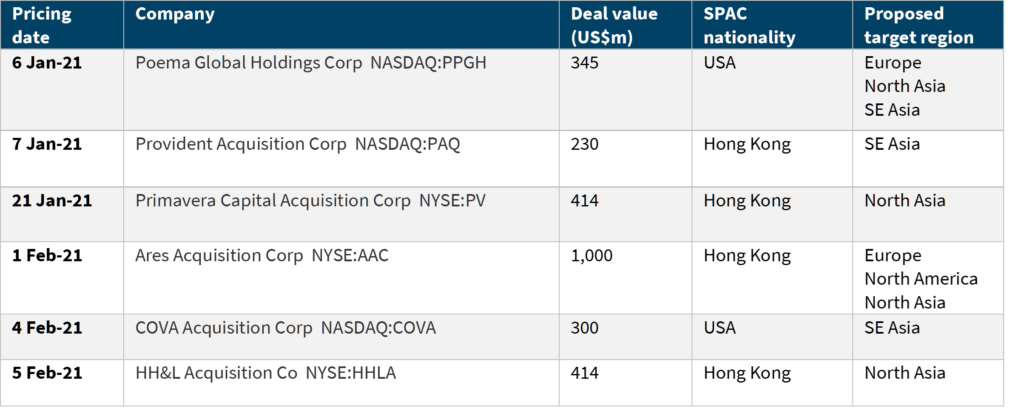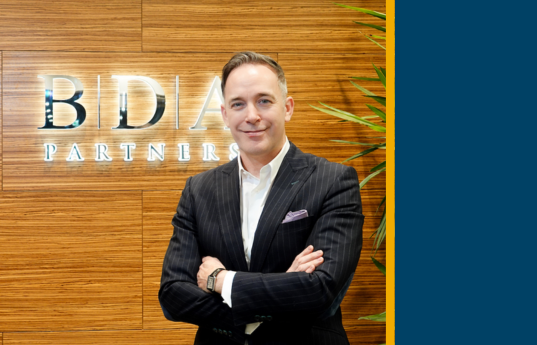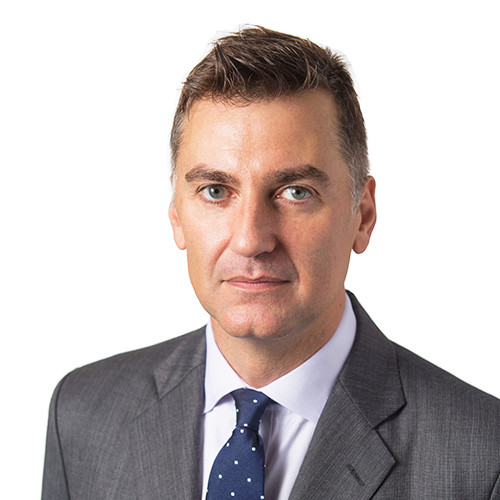12 March 2021
How Asia learned to love SPACs
SPACs are the hottest story in financial markets globally, today.
Special Purpose Acquisition Companies (“SPACs”) have been around for 30 years, but they blossomed in 2020, in the US market. 248 SPACs launched last year, raising a total $83bn in proceeds.
And the craze keeps getting hotter: in January and February 2021 alone, 188 SPACs raised $58bn, just in the US.
This rising tide shows that the SPAC approach is, for now, seen as a legitimate and quicker alternative to a traditional US IPO. And yet SPACs are in favour and controversial for the same reason: highly favourable economic returns to SPAC IPO sponsors, market challenges caused by the pandemic, and the apparent execution, pricing and liquidity certainty offered by SPACs, for both investors and target companies.
Today, 300 SPACs are searching for acquisition targets to de-SPAC within a limited timetable, typically two years. As the US becomes saturated, SPACs are increasingly looking for opportunities in South East Asia and Greater China, where companies backed by private equity and venture capital are demonstrating compelling growth and value prospects.
Total deal value of Asia-focused SPACs (US$bn)

This year, we’re beginning to see Asian sponsors listing SPACs in the US.
And yet only two Asian countries, South Korea and Malaysia, allow SPACs to list today.
SE Asia is arguably the most fertile ground for acquisitions by SPACs, due to the vibrant technology startup scene and smaller domestic IPO markets. This raises the question of whether financial hubs like Hong Kong and Singapore should themselves consider becoming more SPAC-friendly.
But for now, Asian companies are mostly looking to SPACs in the US.
Here are some of the ways Asian markets are engaging with SPACs – or resisting them.
1. CHINA
China is the go-to model for the South- and SE-Asian technology unicorns. Alibaba and JD.com are Chinese giants with dual US-China listings. Political pressure and rampant local multiples have encouraged Asian companies to explore regional markets, not just NASDAQ.
Notwithstanding the trade war, NYSE and NASDAQ have expressed willingness to continue to entertain China-related SPACs.
US billionaire Dan Och and his family office, Willoughby Capital, own 5.6% of Primavera Capital Acquisition Corp, a SPAC led by Fred Hu, formerly of Goldman Sachs China, hunting for a consumer target with a significant presence and potential in China. Primavera raised $350m in an NYSE IPO.
Fang Fenglei, founder of HOPU, is active via HH&L, a SPAC, now chasing a China healthcare target.
CITIC Capital raised $240m for a SPAC targeted on the energy efficiency, clean technology and sustainability sectors, in China and beyond.
The Shanghai Stock Exchange’s Sci-Tech Innovation Board (STAR Market), has attracted many high-growth startups. The popularity of these platforms offers issuers potentially stratospheric valuations, without going down the SPAC route.
New Frontier Group, an asset manager run by Anthony Leung, Hong Kong’s former financial secretary, merged Chinese private hospital United Family Healthcare with its SPAC on the NYSE in 2019. New Frontier Health is still trading below its $10 IPO price, and is soon set to be taken private by a consortium, again led by Leung, valued at only $12 a share.
Octillion Energy, a privately-held US and China headquartered electric vehicle powertrain solutions provider recently hired Bank of America to explore a potential acquisition by a NASDAQ listed SPAC instead of a trade sale.
2. HONG KONG
Hong Kong and Singapore are taking divergent approaches to the SPAC boom, as they watch Asian unicorns explore future listing structures.
The Hong Kong Exchange prefers traditional IPOs and is treading a more cautious path.
Hong Kong has long been one of the world’s top IPO destinations alongside New York and Shanghai, and it has been skeptical about non-IPO listings. In recent years, HKEX has been tightening rules on backdoor listings and shell activities. Regulators in Hong Kong and mainland China have been working hard to streamline and simplify conventional IPO listing procedures and requirements, reducing the appeal of the SPAC route. Hong Kong already allows pre-revenue biotech companies to list on its main board.
Model Performance Acquisition, a Hong Kong-based blank check company led by ex-Templeton Asset Management North Asia PE co-head Claudius Tsang, has filed with the US Securities and Exchange Commission (SEC) to raise up to $50m in an IPO.
Ace Global Business Acquisition is a Hong Kong blank check company targeting gaming and e-commerce in China, Japan and SE Asia, launching a US IPO. The company is led by Eugene Wong of Whiz Partners Asia and the China Hero PJ Fund.
HKEX’s CEO Calvin Tai said the bourse “will open our eyes and ears, listen to the market, and watch other markets” when it comes to future IPO regulations.
In 2020, 154 companies raised a combined US$52bn in IPO proceeds in Hong Kong.
3. INDIA
An array of Indian companies, valued at $30bn or so in total, are considering SPAC deals in the US. For example, Indian ecommerce pioneer Flipkart, owned by Walmart Inc, is mulling merging with a blank-cheque company in the US, potentially at a $35bn valuation.
SPACs are scouring India’s more mature targets. Last week, ReNew Power, one of India’s largest renewable energy groups, unveiled plans to go public in New York through an $8bn deal with a SPAC. ReNew Power is an Indian renewable energy company, with an asset base of 8 GW, of which 5 GW is operational. It is now exploring a dual listing in Mumbai.
Baring Private Equity Asia is considering listing US-Indian health tech company, Citiustech Healthcare Technology Pvt., in the US through a SPAC merger. Baring is hoping for a valuation of US$1bn for Citiustech. Baring only acquired its majority stake in Citiustech in 2019 for US$750m.
4. INDONESIA
Indonesia is a less mature market, but with a huge consumer population and a growing online economy. This has created four unicorns to date. Naturally they have considered the merits of listing via SPAC.
The Indonesia Stock Exchange is the third Asian market, after Hong Kong and Singapore, to consider allowing SPACs to list. Last year, there was only one SPAC deal involving an Asian company. Only five Asian start-ups have listed via SPAC since 2016.
Ecommerce leaders Tokopedia and Bakalapak, and airline ticketing and hotel booking services player, Traveloka are all considering SPAC mergers today. SPAC deals may be just one step along the way: a proposed $18bn merger between Tokopedia and ride-share giant Gojek could lead to a dual listing in New York and Jakarta.
The biggest SPAC focused on SE Asia is Bridgetown Holdings, backed by Richard Li and VC Peter Thiel. Bridgetown raised $595m, and is exploring a potential merger with Tokopedia that could value the unicorn at $8bn-$10bn.
Provident Acquisition is a $200m SPAC launched by SE Asian fund Provident Growth. Provident backed Gojek, Indonesia’s biggest start-up, and Traveloka.
5. JAPAN
Japan doesn’t allow SPACs on its domestic markets. The Japanese authorities don’t consider SPACs to be sufficiently transparent or safe in regulatory terms, as a path to IPO, or as an investment vehicle.
SoftBank is listing two new SPACs on NASDAQ. The Japanese conglomerate will raise $480m to acquire businesses in the AI sector. SoftBank’s SPACs are funded primarily by its Vision Fund. SoftBank listed its first SPAC in the US in January 2021, raising $525m.
6. SINGAPORE
The Stock Exchange of Singapore is likely to approve the formation of SPACs in Singapore.
Singapore’s IPO ranking is far behind Hong Kong, while it has suffered a slow-burning delisting trend in recent years – making it more receptive to SPACs as a growth engine.
The Singapore Stock Exchange is home to more old economy companies and REITs. SPACs would be a natural step for Singapore to attract new economy listings.
The spectacular rise of Sea, the Singapore gaming and ecommerce company listed on NYSE, was one of the world’s best-performing stocks in 2020.
Grab, backed by SoftBank and Shinsegae, is exploring going public in the US through a merger with a SPAC to speed up its listing process. Grab is a “super app” that offers multiple conveniences, including ride-hailing, financial services and food delivery. The platform has traction in eight countries — including Singapore, Indonesia, Vietnam and Thailand. Its mobile app has been downloaded more than 14 million times. This comes after talks to combine with Indonesian rival Gojek collapsed. See above.
Singapore’s on-demand bus service provider Swat Mobility is contemplating a Japan IPO to fund its expansion, or else a merger with a US SPAC to gain a listing there.
COVA Acquisition, Crescent Cove’s $300m SPAC, listed in February, is now scouting for targets across SE Asia.
L Catterton Asia Acquisition Corp launched this week as a consumer tech-focused $250m IPO on NASDAQ.
SPACs formed in 2021, searching for targets in Asia

Source: Dealogic, Mergermarket
Investors have already poured almost $3bn into SPACs focused on acquiring Asian companies this year, nearly doubling the amount committed during all of 2020, according to Dealogic. While modest by the standard of American companies, BDA understands that several Asian private equity firms are hoping to join the stampede.
The gold-rush mentality is causing concern from sponsors looking to invest, about inflated valuations for young businesses. Asian management teams at fast-growing companies are typically unprepared for the regulatory requirements of a US listing. Asian markets are simultaneously tightening restrictions on backdoor listings which avoid the independent due diligence process on a traditional IPO.
As described above, many of Asia’s most high-profile entrepreneurs and CEOs are playing in the SPAC pool. In addition to Fred Hu, Ken Hitchner, ex-head of Goldman Sachs Asia Pacific, Li Ka-shing’s son Richard Li, and Peter Thiel, the US tech investor, have all backed significant SPACs focusing their aim on SE Asia.
Most of SE Asia’s burgeoning unicorns are still valued below $3bn, which was the traditional minimum value for an IPO in the US.
As a result, Asia-focused SPACs are chasing a limited pool of viable targets.
However, Asia’s limited history of companies successfully going public via SPAC could weigh on the region’s prospects.
Sponsors have also come under scrutiny for their own lucrative compensation, typically a 20% stake in the company.
They have flocked to the US, where investors show apparently limitless appetite for blank check firms, while the larger exchanges in Asia still do not allow SPACs to list.
SPACs feel like a reflection of the mature bull market. The exuberance has sparked debate among investors and bankers about how long the trend will continue, and whether there will be enough suitable targets to be merged, if the frenzied pace of fundraising continues.
Many observers expect the SPAC mania to end badly – but not before more investors, CEO, bankers and sponsors have ridden the wave for a while longer.
About BDA Partners
BDA Partners is the global investment banking advisor for Asia. We are a premium provider of Asia-related advice to sophisticated clients globally, with 25 years’ experience advising on cross-border M&A, capital raising, and financial restructuring. We provide global reach with our teams in New York and London, and true regional depth through our seven Asian offices in Mumbai, Singapore, Ho Chi Minh City, Hong Kong, Shanghai, Seoul and Tokyo. BDA has deep expertise in the Chemicals, Consumer & Retail, Health, Industrials, Services and Technology sectors. We work relentlessly to earn our clients’ trust by delivering insightful advice and outstanding outcomes. BDA Partners has strategic partnerships with William Blair, a premier global investment banking business, and with DBJ (Development Bank of Japan), a Japanese government-owned bank with US$150bn of assets.
US securities transactions are performed by BDA Partners’ affiliate, BDA Advisors Inc., a broker-dealer registered with the Securities and Exchange Commission (SEC). BDA Advisors Inc. is a member of the Financial Industry Regulatory Authority (FINRA) and SIPC. In the UK, BDA Partners is authorised and regulated by the Financial Conduct Authority (FCA). In Hong Kong, BDA Partners (HK) Ltd. is licensed and regulated by the Securities & Futures Commission (SFC) to conduct Type 1 and Type 4 regulated activities to professional investors. www.bdapartners.com
Latest insights

11 June 2025
Private credit could fuel bargain M&A deals as luxury fashion empires...
Euan Rellie, Managing Partner and Chairman of Consumer & Retail, BDA...

6 June 2025
Jeff Acton speaks to Worldfolio on how BDA became the leading cross-border...
Jeff Acton, Partner and Head of BDA’s Tokyo office, was recently interviewed...

30 April 2025
A volatile world: how are Trump’s tariffs impacting cross-border M&A?...
President Trump’s tariffs have injected new risk and complexity into...

25 April 2025
BDA’s Jeff Acton quoted in Bloomberg on Japan’s overseas M&A...
Bloomberg has featured commentary from BDA Partners in its latest article...

